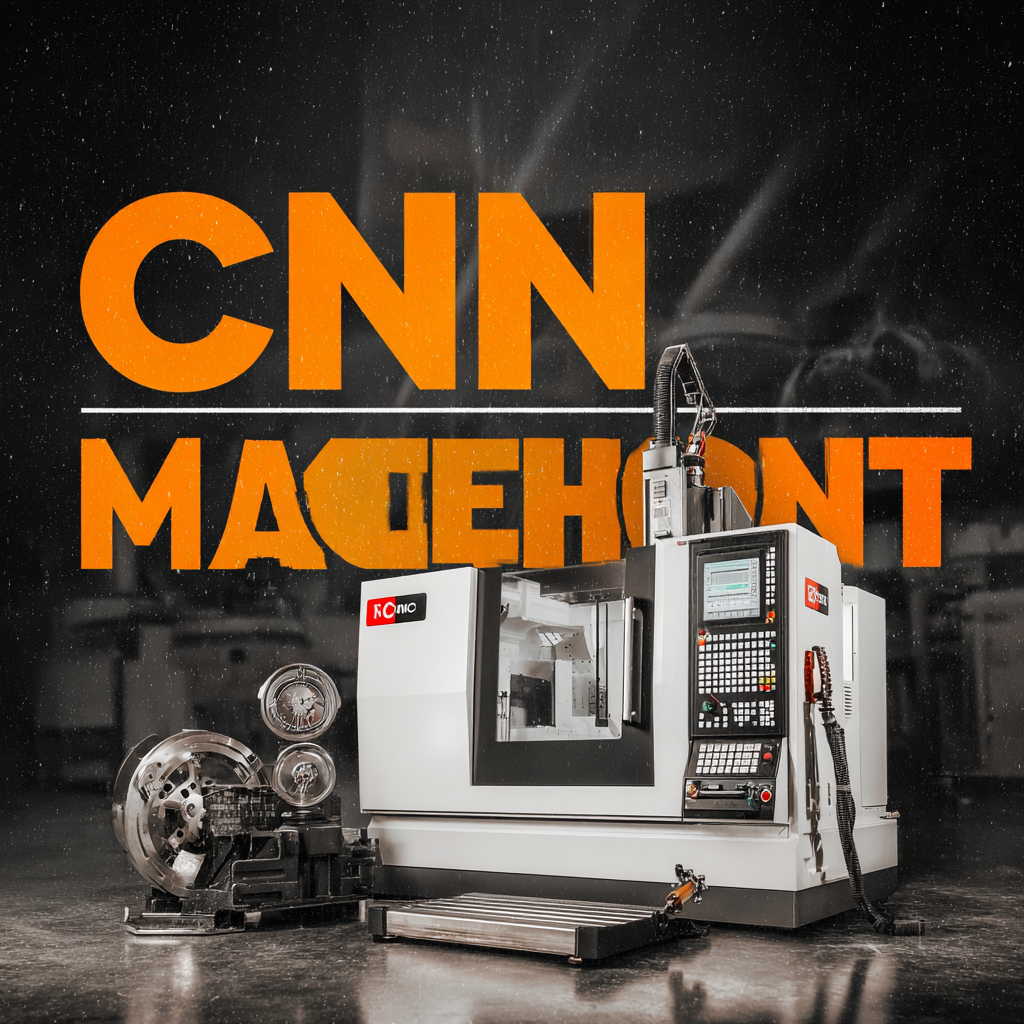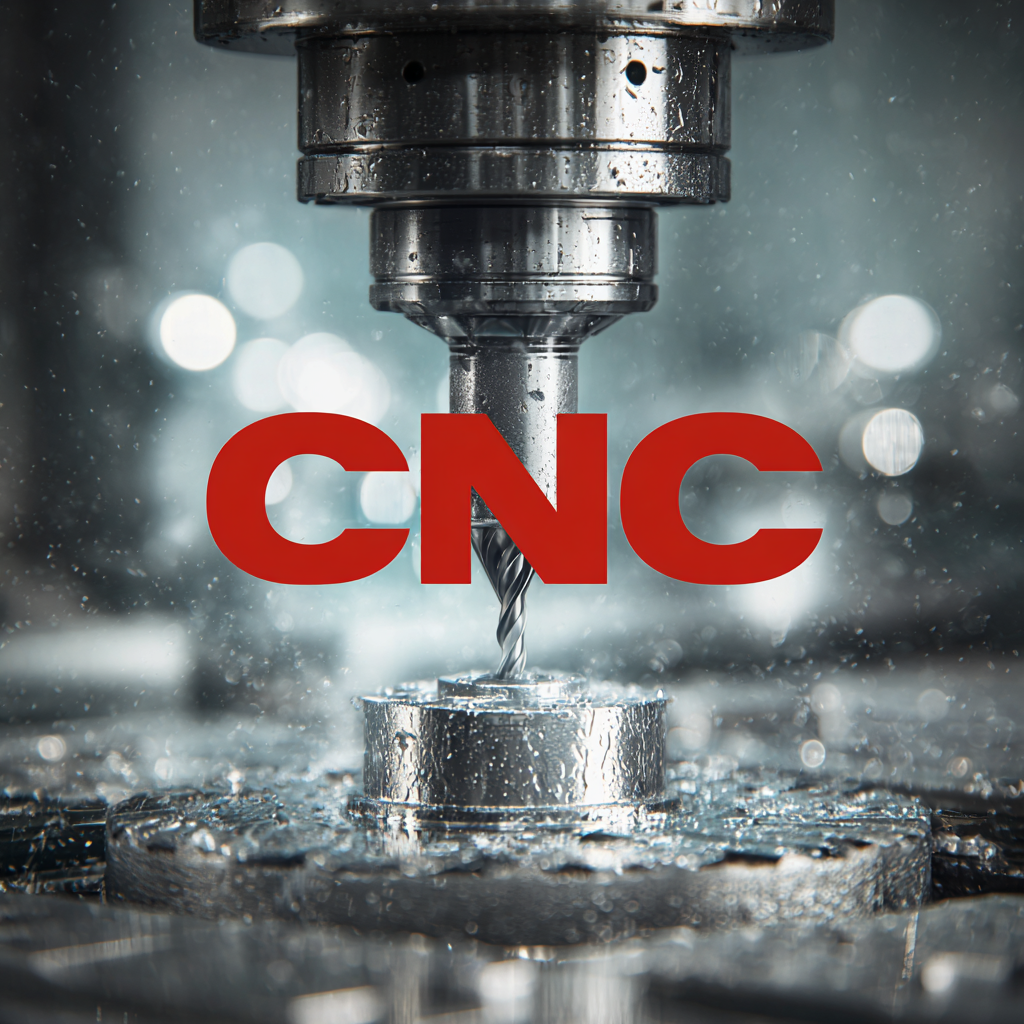The Ultimate Guide to Discovering Top Quality Suppliers for Best CNC Equipment
In the rapidly evolving realm of manufacturing, the demand for high-quality CNC equipment has surged dramatically, with the global CNC machine market expected to reach approximately $105 billion by 2026, growing at a CAGR of 6.5% from 2021. This growth reflects not only advancements in technology but also the increasing reliance on precision engineering across various industries. As businesses strive to enhance efficiency and produce superior products, the importance of sourcing top-quality suppliers becomes paramount. With China leading the way in manufacturing prowess, offering cutting-edge CNC equipment characterized by precision and reliability, understanding how to identify and partner with the best suppliers is crucial. This guide aims to equip you with the insights and strategies needed to navigate the complex landscape of CNC equipment procurement, ensuring that your manufacturing processes remain competitive in a global marketplace.

Identifying Key Technical Parameters for Selecting CNC Equipment
When selecting CNC equipment, understanding key technical parameters is crucial for ensuring optimal performance and longevity. Chief among these parameters are precision, speed, and rigidity. According to a report by the International Association of Machinists and Aerospace Workers, precision is often defined by the tolerance levels that a machine can maintain, typically ranging from ±0.001" to ±0.0001" for high-end CNC machines. This precision dictates the quality of the finished product, influencing not only dimensions but also surface finish, which is critical in industries like aerospace and automotive.
Additionally, spindle speed is a vital characteristic that affects the machining time and material removal rates. A study from the Manufacturing Technology Research Institute highlights that machines capable of operating at spindle speeds up to 20,000 RPM can significantly reduce cycle times for complex parts. Rigidity, on the other hand, is often related to the mass and design of the equipment, impacting its ability to absorb vibrations during operation. High rigidity levels are essential for producing accurate parts, especially when machining hard materials where chatter can result in poor surface quality. These technical parameters should guide buyers in assessing potential suppliers, ensuring they invest in equipment that meets their specific machining requirements.
The Performance Metrics of Different CNC Equipment
This chart presents the performance metrics of various CNC equipment based on key technical parameters such as Accuracy, Speed, and Versatility. The data reflects a comparison of performance levels to assist in selecting the best CNC equipment.
Evaluating Supplier Credentials: Certification and Industry Experience
When searching for top-quality suppliers for CNC equipment, evaluating their credentials is essential. Start by checking their certifications. Reliable suppliers should hold recognized certifications such as ISO 9001 or equivalent. These certifications demonstrate their commitment to quality management systems and ensure that they meet international standards. Don't hesitate to request copies of their certifications for your records, as this transparency indicates a trustworthy relationship.
In addition to certifications, consider the supplier's industry experience. A supplier with extensive experience in CNC equipment will have a deeper understanding of the market's demands and technological advancements. Look for suppliers who have been in the industry for several years and have a proven track record of successful partnerships. Check their portfolio for client testimonials or case studies that highlight their expertise and reliability.
Tips: Always ask potential suppliers about their ongoing training programs for staff, as continuous education reflects an organization’s dedication to keeping pace with industry changes. Additionally, engage in conversations with other businesses who have worked with the supplier, as first-hand accounts can provide invaluable insight into the supplier's reliability and service quality.
Comparative Analysis of Top CNC Equipment Brands and Models
When exploring the vast landscape of CNC (Computer Numerical Control) equipment, a comparative analysis of top brands and models provides critical insights for manufacturers seeking quality and reliability. A report by MarketsandMarkets indicates that the global CNC machine market is expected to reach $100 billion by 2025, driven predominantly by the increasing demand for precision and automation in manufacturing processes. Key players such as Haas Automation and DMG MORI consistently rank high in terms of performance and customer satisfaction, making them standout choices for businesses aiming to enhance operational efficiency.

Furthermore, a study from Technavio highlights that Siemens and FANUC are leading the charge in CNC control technologies, with their systems lauded for superior integration capabilities and user-friendly interfaces. FANUC's latest models have shown a remarkable reduction in cycle times by up to 20%, which is vital for industries where time translates directly into profits. By examining different models offered by these brands, companies can identify CNC equipment that aligns not only with technical specifications but also with their unique production needs, ensuring a well-informed investment decision in a highly competitive market.
Understanding Cost-Benefit Factors When Choosing CNC Suppliers
When selecting CNC suppliers, understanding the cost-benefit factors is crucial for maximizing your investment. First, it’s important to analyze the balance between the upfront costs and the long-term benefits that specific suppliers can offer. High-quality CNC equipment may come with a higher price tag initially, but the durability, precision, and efficiency it provides often translate into significant savings over time. Reduced downtime due to fewer machine failures can greatly enhance productivity and profitability.

Another key consideration is the support and services offered by the supplier. A lower-priced supplier might lack comprehensive after-sales service or technical support, which can lead to increased costs down the line if problems arise. Evaluating suppliers based not only on price but also on their warranty terms, training, and ongoing support will help ensure that you're making a well-rounded decision. A supplier that invests in customer care and post-purchase support can significantly enhance your operational efficiency, making it a valuable long-term partner rather than just a vendor.
Maximizing Efficiency: Integrating Technology and Supplier Collaboration
In today's fast-paced manufacturing environment, maximizing efficiency is more critical than ever. The integration of advanced technology in CNC equipment not only streamlines operations but also enhances collaboration with suppliers. By leveraging real-time data sharing and advanced analytics, businesses can create a seamless flow of information between themselves and their suppliers. This allows for quicker decision-making processes and fosters a proactive approach to supply chain management.
Moreover, cultivating strong relationships with top-quality suppliers is essential for optimizing CNC operations. Engaging in collaborative efforts, such as joint product development and innovation, can lead to improved equipment performance and reduced lead times. By prioritizing communication and alignment on goals, companies can ensure that their suppliers understand their specific needs, resulting in tailor-made solutions that drive efficiency. With technology as a backbone, businesses can explore new avenues of collaboration, ensuring they remain competitive in the evolving landscape of modern manufacturing.

